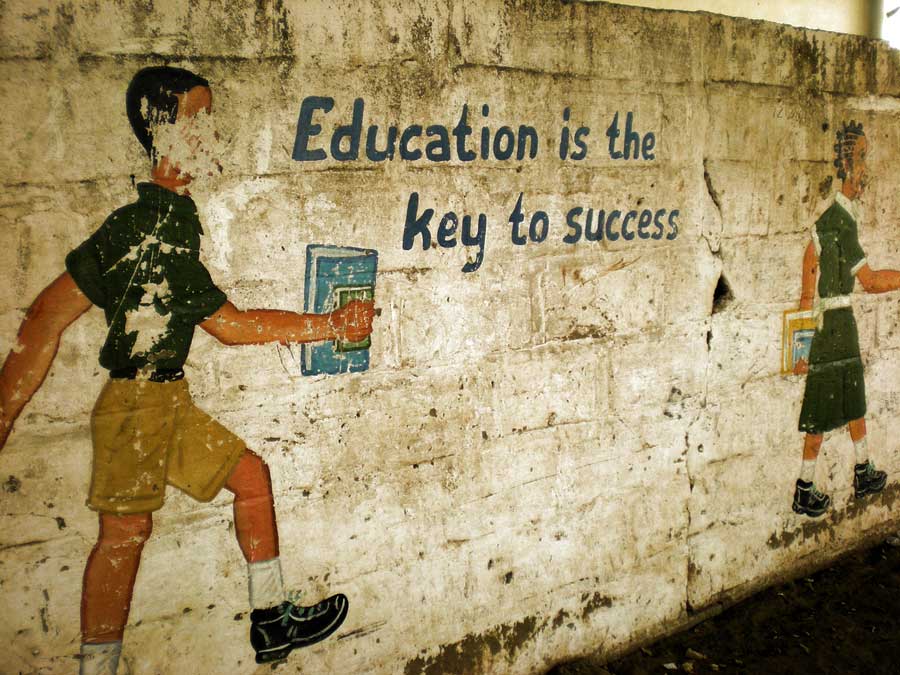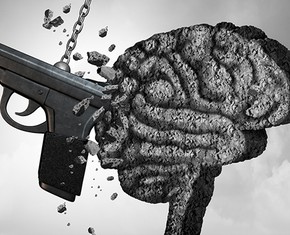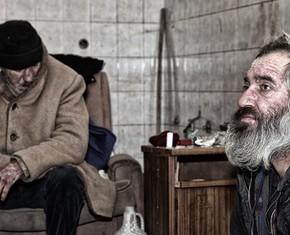The views expressed in our content reflect individual perspectives and do not represent the authoritative views of the Baha'i Faith.
Many people think of the American educational system as the world’s finest—but we have much to improve before we reach that level of excellence.
Racial segregation continues to blatantly plague our country, and schools in a number of communities reflect this bleak reality.
In the United States, the school-to-prison pipeline violently pushes masses of black and brown children into incarceration.
College costs have climbed to record highs, leaving young people with insurmountable debt; this abhorrent price of higher education further diminishes social mobility and economic equality.
Many schools struggle to accommodate the diverse ways in which people learn. History lessons often exclude the voices of the oppressed within our society, sending young people out into the world with a false understanding of truth.
The list of ways our educational system fails could go on and on. Although many focus on how to extend higher quality education to poor black and brown kids—imagining that we will thereby achieve equality—what about the kids we deem privileged? Is there not a need to improve the way we educate these children too?
From a Baha’i perspective, we do need to create a more just educational system where necessary resources are extended to rich and poor alike:
How education can become the key to social change
From a Baha’i perspective, we need to create a more just educational system where high-quality teaching extends to rich and poor alike:
… among the teachings of Baha’u’llah is the promotion of education. Every child must be instructed in sciences as much as is necessary. If the parents are able to provide the expenses of this education, it is well, otherwise the community must provide the means for the teaching of that child.
And among the teachings of Baha’u’llah are justice and right. Until these are realized on the plane of existence, all things shall be in disorder and remain imperfect. The world of mankind is a world of oppression and cruelty, and a realm of aggression and error. – Abdu’l-Baha, Selections from the Writings of Abdu’l-Baha, p. 227.
Baha’is also believe that one important function of education involves teaching people how to make a living:
The education of each child is compulsory … In addition to this wide-spread education each child must be taught a profession, art, or trade, so that every member of the community will be enabled to earn his own livelihood. Work done in the spirit of service is the highest form of worship … – Abdu’l-Baha, Divine Philosophy, p. 83.
However, education also seems to have the potential for more. Perhaps school provides a place that can disrupt the immoral legacies often passed down between generations who hold power within our society. What if these young people coming from privileged families were taught early on to better identify inequity, to more fluidly practice generosity, and to focus on serving the masses of humanity in an unbiased and equitable way?
Though it may seem far-fetched to some, Baha’is believe that through education we can not only transform our intellect, but also our society at large:
… education exerts an enormous influence. Through education the ignorant become learned, the cowardly become courageous, the crooked branch becomes straight, the acrid and bitter fruit of the mountains and woods becomes sweet and succulent, and the five-petalled flower puts forth a hundred petals. – Abdu’l-Baha, Some Answered Questions, newly revised edition, p. 247.

Social psychologists identify school as one of the main socializing agents. Children typically start school at a very early age, and thus schools have a special potential to affect the way someone operates in their adult life
Schools need to continue to become places that afford socioeconomic growth—but schools have the capacity for so much more. They can transform into forces that disrupt cycles of oppression by teaching students how to recognize the interconnectedness between themselves and those who are different from them. With time and effort, the educational system has the potential to shift our culture from a largely individualistic lens to one focused on the oneness of humanity:
Baha’u’llah has announced that inasmuch as ignorance and lack of education are barriers of separation among mankind, all must receive training and instruction. Through this provision the lack of mutual understanding will be remedied and the unity of mankind furthered and advanced. Universal education is a universal law. It is, therefore, incumbent upon every father to teach and instruct his children according to his possibilities. If he is unable to educate them, the body politic, the representative of the people, must provide the means for their education. – Abdu’l-Baha, The Promulgation of Universal Peace, p. 98.
As citizens of a world in need of healing, we are all responsible for taking the steps that can enhance educational effectiveness. We not only need to educate with a focus on helping a few of many disadvantaged rise out of poverty, but also by paying urgent attention to addressing the roots of inequality.
















Comments
Sign in or create an account
Continue with Googleor